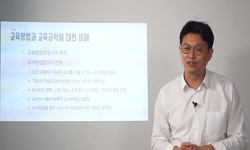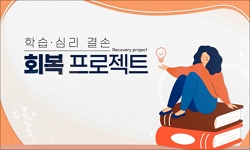인공지능 기술이 발전함에 따라 다양한 윤리문제들이 대두되고 있다. 인공지능교육이 2022개정 교육과정에 반영될 예정이며 경쟁력 있는 AI 국가가 되기 위해서는 앞으로 벌어질 다양한 인공...
http://chineseinput.net/에서 pinyin(병음)방식으로 중국어를 변환할 수 있습니다.
변환된 중국어를 복사하여 사용하시면 됩니다.
- 中文 을 입력하시려면 zhongwen을 입력하시고 space를누르시면됩니다.
- 北京 을 입력하시려면 beijing을 입력하시고 space를 누르시면 됩니다.

플립러닝을 활용한 프로젝트 기반 인공지능교육 프로그램이 인공지능 윤리의식과 창의적 문제해결력에 미치는 영향 = Effects of the Project-based AI Education Program on AI Ethical Consciousness and Creative Problem-Solving Skills using Flipped Learning
한글로보기https://www.riss.kr/link?id=A107896444
- 저자
- 발행기관
- 학술지명
- 권호사항
-
발행연도
2021
-
작성언어
-
- 주제어
-
KDC
370
-
등재정보
KCI등재
-
자료형태
학술저널
-
수록면
359-368(10쪽)
-
KCI 피인용횟수
0
- DOI식별코드
- 제공처
- 소장기관
-
0
상세조회 -
0
다운로드
부가정보
국문 초록 (Abstract)
인공지능 기술이 발전함에 따라 다양한 윤리문제들이 대두되고 있다. 인공지능교육이 2022개정 교육과정에 반영될 예정이며 경쟁력 있는 AI 국가가 되기 위해서는 앞으로 벌어질 다양한 인공지능 윤리문제에 관해 학생들이 비판적으로 사고·판단하는 인공지능 윤리의식과 창의적 문제해결 능력이 필요하다. 본 연구에서는 플립러닝을 활용한 프로젝트 기반 학습이 인공지능교육에 가장 적합한 방법이라 보고 이를 바탕으로 한 프로그램을 개발하여 인공지능 윤리의식과 창의적 문제해결력에 미치는 영향을 살펴보고자 하였다. 이를 위해 서울 A초등학교의 동아리 6학년 18명을 단일집단 연구대상으로 설정하여, 10차시의 프로그램을 개발·적용한 후 사전·사후 검사를 실시하고 대응표본 t검정을 시행하였다. 연구결과, 본 프로그램은 초등학생을 위한 인공지능 이해·활용·윤리 교육 측면에서 효과적이었고, 본 프로그램은 인공지능 윤리의식과 창의적 문제해결력에 긍정적인 영향을 미쳤다.
다국어 초록 (Multilingual Abstract)
With the development of technology, various ethical issues are emerging. In order for AI education to be reflected in the 2022 revised curriculum and to enhance AI competitiveness of the nation, students need an ethics awareness and creative problem-s...
With the development of technology, various ethical issues are emerging. In order for AI education to be reflected in the 2022 revised curriculum and to enhance AI competitiveness of the nation, students need an ethics awareness and creative problem-solving ability to solve various ethical issues. This study attempted to examine the effect of projectbased AI education programs using flipped learning. 18 6th graders participated as subjects for a single group study, 10 lessons were applied, the response sample t-test was performed with pre- and post-tests. The results showed that the program was effectively in boosting AI understanding, utilization, and ethics education for students. The developed program had a positive effect on the improvement of learners AI ethical consciousness and creative problem-solving ability.
목차 (Table of Contents)
- I. 서 론 II. 이론적 배경 III. 연구방법 IV. 연구결과 V. 논 의
- I. 서 론 II. 이론적 배경 III. 연구방법 IV. 연구결과 V. 논 의
참고문헌 (Reference)
1 이동엽, "플립드 러닝(Flipped Learning) 교수학습 설계모형 탐구" 한국디지털정책학회 11 (11): 83-92, 2013
2 이은영, "플립 러닝형 프로젝트 기반 학습을 위한 교수설계 전략과 모형 개발" 학습자중심교과교육학회 18 (18): 135-164, 2018
3 정명화, "프로젝트 수업이 대학생의 창의적 사고, 창의적 성향 및 문제해결능력 향상에 미치는 효과" 한국교육심리학회 18 (18): 287-301, 2004
4 이경화, "팀 프로젝트 중심 창의적 문제해결 프로그램 개발" 한국창의력교육학회 11 (11): 141-160, 2011
5 신세인, "인공지능에 대한 초등학생들의 이미지 탐색" 한국초등과학교육학회 37 (37): 126-146, 2018
6 허유선, "인공지능 윤리와 로봇 윤리, 차이와 연속성-모두의 윤리로서 인공지능 윤리를 향하여-" 동서사상연구소 (34) : 41-72, 2020
7 이은경, "국내외 초·중등학교 인공지능 교육과정 분석" 한국컴퓨터교육학회 23 (23): 37-44, 2020
8 Shin, J., "What are the five paradigms of future education in the era of artificial intelligence?"
9 Kim, H., "The direction of SW and AI education in the future through computing curriculum 2020" SPRI 2020
10 Park, S., "The development of teaching & learning model for project-based learning using flipped learning in elementary school" Kyungsang University 2021
1 이동엽, "플립드 러닝(Flipped Learning) 교수학습 설계모형 탐구" 한국디지털정책학회 11 (11): 83-92, 2013
2 이은영, "플립 러닝형 프로젝트 기반 학습을 위한 교수설계 전략과 모형 개발" 학습자중심교과교육학회 18 (18): 135-164, 2018
3 정명화, "프로젝트 수업이 대학생의 창의적 사고, 창의적 성향 및 문제해결능력 향상에 미치는 효과" 한국교육심리학회 18 (18): 287-301, 2004
4 이경화, "팀 프로젝트 중심 창의적 문제해결 프로그램 개발" 한국창의력교육학회 11 (11): 141-160, 2011
5 신세인, "인공지능에 대한 초등학생들의 이미지 탐색" 한국초등과학교육학회 37 (37): 126-146, 2018
6 허유선, "인공지능 윤리와 로봇 윤리, 차이와 연속성-모두의 윤리로서 인공지능 윤리를 향하여-" 동서사상연구소 (34) : 41-72, 2020
7 이은경, "국내외 초·중등학교 인공지능 교육과정 분석" 한국컴퓨터교육학회 23 (23): 37-44, 2020
8 Shin, J., "What are the five paradigms of future education in the era of artificial intelligence?"
9 Kim, H., "The direction of SW and AI education in the future through computing curriculum 2020" SPRI 2020
10 Park, S., "The development of teaching & learning model for project-based learning using flipped learning in elementary school" Kyungsang University 2021
11 Kim, S., "The development and application of sewing practice program for improvement of middle school students ʼ creative problem solving ability and collaborative ability" Busan University 2018
12 Kim, G., "Study on the development of test for artificial intelligence ethical awareness" 2 (2): 1-19, 2021
13 Hwang, G. J., "Seamless flipped learning : A mobile technology-enhanced flipped classroom with effective learning strategies" 2 (2): 49-473, 2015
14 Jeon, C., "Luda, who says what she learned, is innocent:The problem is the disappearance of AI ethics"
15 "IAPP"
16 Lee, K., "How to use artificial intelligence: Need to nurture talented people who know it"
17 Kim, Y., "Future social change with AI technology development" KISTEP 52-65, 2018
18 Warter-Perez, N., "Flipping the classroom:How to embed inquiry and design projects into a digital engineering lecture" 2012
19 Ryu, M., "Extraction of learning elements and development of teaching and learning models for AI ethics education" 2 (2): 45-52, 2021
20 Han, J., "Examining the effectiveness of English grammar peer-tutoring in a flipped learning environment:Focusing on elementary and middle school students’ perceptions, writing achievement, and satisfactions" Chosun University 2021
21 Sung, T., "Easy to understand statistical analysis" Hakjisa 2019
22 Kang, H., "Development of philosophical inquiry community teaching model based on project approach" Inha Univeristy 2018
23 Kim, S., "Development of instructional model for flipped learning based on smart education" Incheon University 2015
24 Yeo, S., "Development of execution strategies for design model of project-based learning in elementary school" Keimyung University 2016
25 Kim, M., "Current status and challenges of science gifted education" 2009
26 Cho, Y., "Creativity education : Creative problem-solving skills development and educational methods" Ewha Womans University 2008
27 Han, J., "Artificial intelligence ethics guidelines:Focusing on Japanese and EU cases" NIA Intelligent Information Society 2019
28 KOFAC, "Artificial intelligence education guide. KOFAC Educational materials"
29 Jang, Y., "Analysis of overseas AI curriculum based on AI’s 5 big ideas" 24 (24): 67-70, 2020
30 Jeon, I., "Analysis of artificial intelligence education policy trends and educational institution’s operation status in Korea" 25 (25): 99-103, 2021
31 MSIT, "AI R&D strategy to realize I-Korea 4.0" The presidential committee on the 4th industrial revolution agenda
32 Kazdin, A., "A single subject study" Sigma Press 2016
33 Lawshe, C. H., "A quantitative approach to content validity" 28 : 568-, 1975
34 Kafi, Z., "A flipped classroom : Project-based instruction and 21st century skills" 6 (6): 35-46, 2014
동일학술지(권/호) 다른 논문
-
학교체육정책 운영 현황 및 성과분석: 정량지표를 중심으로
- 이화여자대학교 교과교육연구소
- 박정준(Park, Jeong-Jun)
- 2021
- KCI등재
-
Re-examining Accuracy Measures in Task-based Research: Task Repetition
- 이화여자대학교 교과교육연구소
- On-Soon Lee
- 2021
- KCI등재
-
사제동행 과학진로체험활동 프로그램 참여를 통한 교육 소외계층 학생들의 과학정체성 변화 탐색
- 이화여자대학교 교과교육연구소
- 이향연(Rhee, Hyang-yon)
- 2021
- KCI등재
-
예비음악교사의 테크놀로지 교수내용지식(TPACK) 역량에 대한 인식 분석1
- 이화여자대학교 교과교육연구소
- 박예랑(Park, Yerang)
- 2021
- KCI등재
분석정보
인용정보 인용지수 설명보기
학술지 이력
| 연월일 | 이력구분 | 이력상세 | 등재구분 |
|---|---|---|---|
| 2026 | 평가예정 | 재인증평가 신청대상 (재인증) | |
| 2020-01-01 | 평가 | 등재학술지 유지 (재인증) |  |
| 2017-03-09 | 학회명변경 | 영문명 : Research Institute of Curriculum Instruction -> Research Institute of Curriculum & Instruction |  |
| 2017-01-01 | 평가 | 등재학술지 유지 (계속평가) |  |
| 2014-01-09 | 학술지명변경 | 외국어명 : 미등록 -> Journal of Research in Curriculum Instruction |  |
| 2013-01-01 | 평가 | 등재학술지 유지 (등재유지) |  |
| 2010-01-01 | 평가 | 등재학술지 선정 (등재후보2차) |  |
| 2009-01-01 | 평가 | 등재후보 1차 PASS (등재후보1차) |  |
| 2007-01-01 | 평가 | 등재후보학술지 선정 (신규평가) |  |
학술지 인용정보
| 기준연도 | WOS-KCI 통합IF(2년) | KCIF(2년) | KCIF(3년) |
|---|---|---|---|
| 2016 | 1.07 | 1.07 | 1.19 |
| KCIF(4년) | KCIF(5년) | 중심성지수(3년) | 즉시성지수 |
| 1.2 | 1.17 | 1.432 | 0.29 |





 RISS
RISS 스콜라
스콜라







